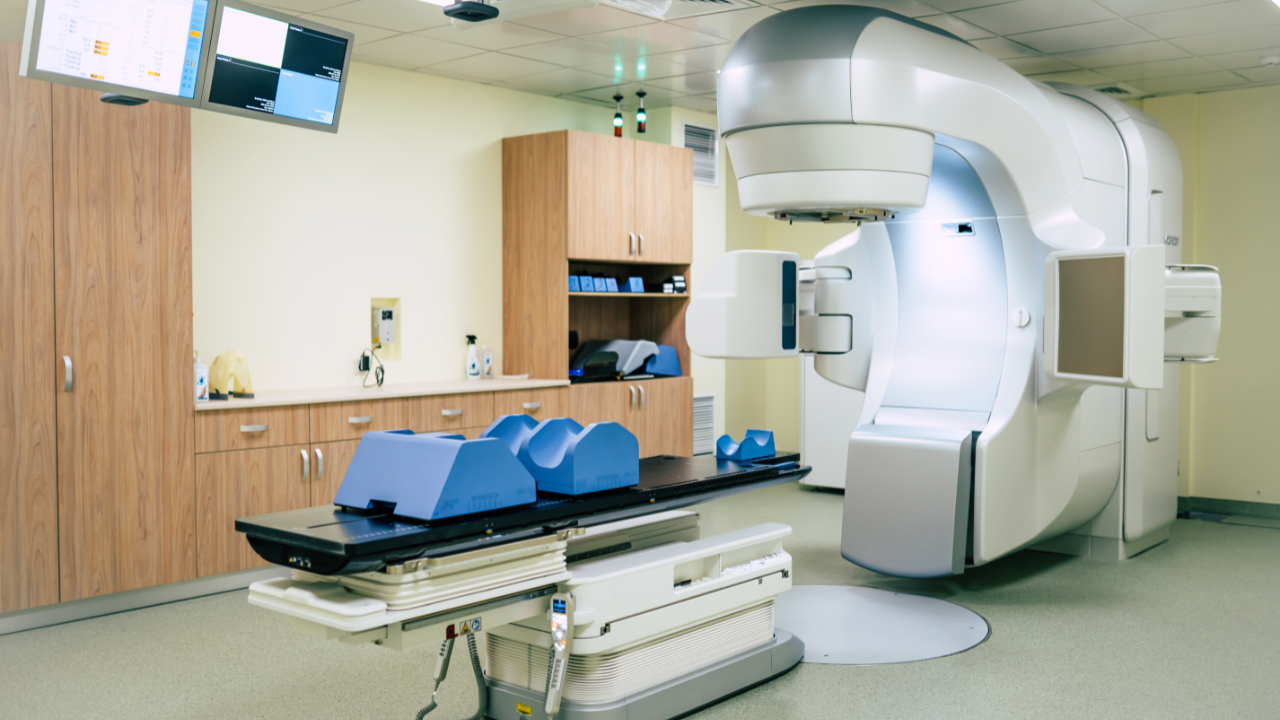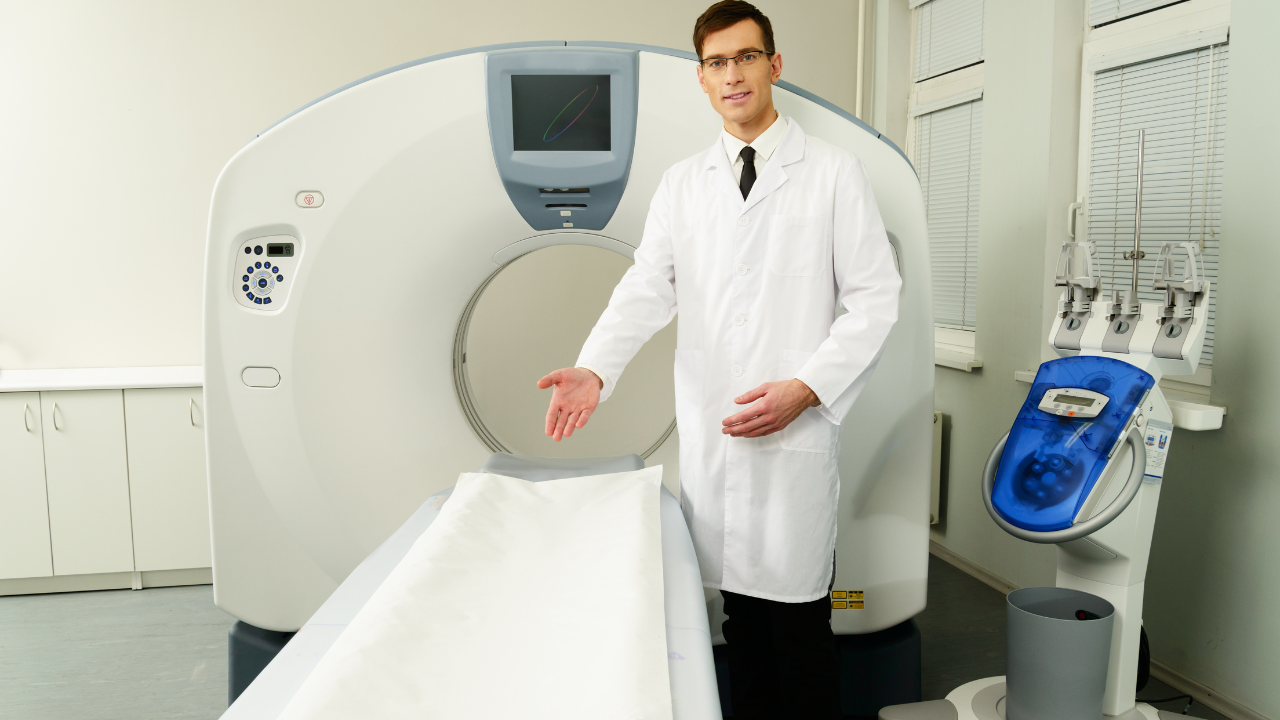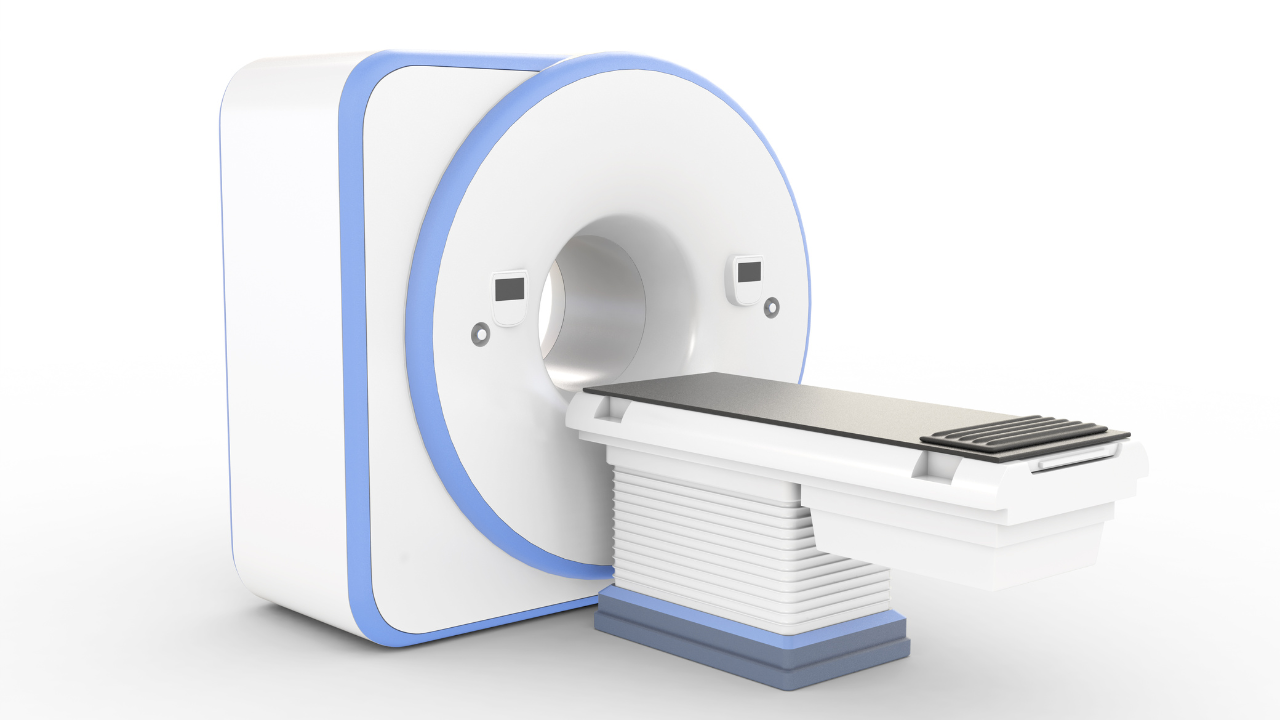Blog and News

If you have metallic implants, pacemakers, are pregnant, or suffer from severe claustrophobia, MRI scans pose specific risks. Metal implants can heat, shift, or interfere with imaging, while pacemakers might malfunction due to electromagnetic interference. During pregnancy, especially the first trimester, MRI and gadolinium-based contrasts
could affect fetal development, calling for careful consideration. Claustrophobic patients often experience severe anxiety, which may require premedication or alternative MRI methods. It's crucial to evaluate each situation to ensure safety and efficacy in imaging. Learn how these factors affect MRI procedures and patient safety.
Key Takeaways
- MRI scans can disrupt the functionality of pacemakers, posing serious health risks.
- Ferromagnetic metal implants may move, heat up, or malfunction during an MRI scan.
- Pregnant women, especially in the first trimester, should avoid MRIs unless absolutely necessary.
- Severe claustrophobia can cause significant anxiety, requiring premedication or alternative MRI techniques.
- Gadolinium-based contrast agents used in MRIs can cross the placenta, potentially affecting fetal development.
Contraindications
Contraindications for MRI scans primarily involve the presence of metallic implants, such as pacemakers or aneurysm clips, that can be affected by the magnetic field. You need to understand that these metallic objects can move, heat up, or malfunction due to the strong magnetic forces. Research shows that ferromagnetic materials within the body can pose significant safety risks by interacting with the magnetic field. Non-ferromagnetic implants, although generally safer, still require thorough evaluation. Always verify the type of implant and its MRI compatibility. Patient safety hinges on your meticulous attention to these details, ensuring that contraindications are identified and addressed beforehand. By doing so, you can prevent potential hazards and provide the highest standard of care during MRI procedures.Pacemakers
Pacemakers, as a specific type of metallic implant, pose a significant risk during MRI scans due to their potential to malfunction or move when exposed to the strong magnetic field. This can result in severe complications for patients. Medical professionals must assess the type of pacemaker and MRI compatibility meticulously. Key issues include:- Electromagnetic Interference: Strong magnetic fields can disrupt pacemaker functionality, leading to improper pacing or complete failure.
- Heating Effects: MRI-induced heating of the pacemaker leads can damage surrounding tissues.
- Device Movement: The magnetic force might cause the pacemaker to shift, affecting its positioning and effectiveness.
- Software Malfunction: MRI scans can corrupt the pacemaker's software, leading to erratic behavior.
Pregnancy
Pregnant patients must be carefully evaluated before undergoing an MRI scan due to potential risks to both the mother and the developing fetus. Although MRI scans don't use ionizing radiation, the strong magnetic fields and radiofrequency energy can cause tissue heating. Studies indicate that MRI scans during the first trimester should be avoided unless absolutely necessary, as this period is critical for fetal development. Additionally, gadolinium-based contrast agents, sometimes used in MRI, cross the placenta and have been linked to rare but serious complications. Therefore, you should always ensure that the clinical benefits outweigh the risks and that alternative imaging modalities, such as ultrasound, have been considered. Proper patient counseling is essential to address concerns and provide informed consent.Metal Implants
Frequently, the presence of metal implants in a patient requires meticulous evaluation before conducting an MRI scan due to the potential for serious complications. These implants can interact with the MRI's powerful magnetic field, leading to hazardous outcomes. You must assess the type, location, and condition of the implant. Potential risks include:- Heating: Metallic implants can heat up, potentially causing burns.
- Movement: The magnetic forces might shift or dislodge implants, risking tissue damage.
- Artifacts: Metal can create artifacts, distorting the imaging results and reducing diagnostic accuracy.
- Compatibility: Not all implants are MRI-safe; some may be contraindicated entirely.
Severe Claustrophobia
Patients with severe claustrophobia often experience significant anxiety and distress during an MRI scan, necessitating careful pre-scan assessment and the possible use of anxiety-reducing interventions. You should consider a detailed patient history to identify any prior claustrophobic reactions. Evidence suggests that premedication with anxiolytics, such as benzodiazepines, can effectively reduce anxiety. Additionally, providing a thorough explanation of the procedure and offering a mock MRI session can help desensitize the patient. It's crucial to maintain open communication, allowing the patient to signal discomfort at any time. Utilizing an open MRI scanner, if available, can also mitigate claustrophobic reactions. These strategies aim to ensure patient comfort and successful imaging outcomes for those with severe claustrophobia.Frequently Asked Questions
What happens after my MRI scan?
After your MRI scan, you should be able to resume your normal activities immediately unless you've been sedated; in that case, you will need someone to drive you home. The radiologist will analyze the images and send a report to your doctor, who will then discuss the findings with you at a follow-up appointment. Depending on the results, additional testing or treatment may be necessary.Will I need to prepare for an MRI?
Preparation for an MRI scan usually involves removing all metal objects, such as jewelry, watches, and hairpins since metal can interfere with the magnetic field. In some cases, you may be asked to fast for a period of time before the scan, or you might receive specific instructions regarding medication intake. Your healthcare provider or the imaging center will provide detailed instructions on how to prepare for your specific MRI exam.Can an MRI affect my medications?
MRI does not typically affect medications. However, it's important to inform the MRI technologist about all medications you are taking, as some medications might necessitate special considerations during the imaging process. For example, if you're on sedatives or pain medications, the facility staff will need to monitor you appropriately.Is contrast material used in MRI?
Yes, in certain cases, a contrast agent is used to enhance the clarity of MRI images. The most common type of contrast material used in MRI is gadolinium-based. It is injected into a vein prior to or during the procedure and helps to provide a clearer picture of the area being examined, especially blood vessels, tumors, or inflammation.Will insurance cover my MRI?
Many health insurance policies cover MRI procedures, especially when deemed medically necessary by your healthcare provider. However, coverage can vary greatly depending on your specific insurance plan, so it's advised to check with your insurance provider to understand the details of your coverage, including deductibles and any copayments or coinsurance amounts that may be your responsibility.How long will an MRI scan take?
The duration of an MRI scan depends on the specific area being imaged and the number of images needed. A typical MRI scan lasts between 20 to 60 minutes. However, some specialized scans may take longer.What are the possible side effects of MRI contrast agents?
The majority of patients experience no side effects from MRI contrast agents. However, a small percentage of individuals may have mild side effects such as nausea, headache, or a feeling of coldness at the injection site. Serious allergic reactions are rare but can occur, so be sure to inform your healthcare provider if you have any known allergies or kidney problems.Statistics
- On average, a single MRI scan can generate up to 100-200 individual image slices.
- Cardiac MRI procedures have increased by over 20% in the past 5 years due to advancements in non-invasive cardiovascular imaging technology.
- Open MRI systems, designed to alleviate claustrophobia, represent about 15% of the total MRIs installed base.
- An estimated 10-15% of patients require sedation during an MRI scan to manage claustrophobia or inability to remain still.
- Contrast-enhanced MRI exams account for approximately 35% of all MRI studies.
- Approximately 40 million MRI scans are performed in the United States each year.
- Pediatric MRI procedures represent approximately 5% of all MRI exams conducted in the United States.
- The FDA reports that serious allergic reactions to MRI contrast agents occur in 0.03-0.1% of administrations.
- MRI is one of the preferred imaging methods for cancer detection and accounted for roughly 21% of all imaging for cancer patients in the latest survey.
- MRI has a high sensitivity rate, with brain MRI achieving over 90% sensitivity for detection of many types of brain pathologies.
External Links
- PubMed Central features a study on the application of MRI in stroke diagnostics.
- American Health Imaging compares different strengths of MRI machines, such as 3T versus 1.5T.
- The International Society for Magnetic Resonance in Medicine (ISMRM) is a professional association that focuses on innovation in MRI.
- The National Center for Biotechnology Information features a book chapter dedicated to MRI in clinical practice.
- The American Journal of Roentgenology features research on the effectiveness of MRI in detecting various diseases.
- RadiologyInfo.org provides an overview of what patients can expect from an MRI procedure.
- Mayo Clinic offers detailed information about MRI, including uses and how to prepare.
- The World Health Organization gives a global perspective on the use and safety of MRI.
- The Radiological Society of North America provides educational resources on radiology, including MRI challenges.
- The American Cancer Society discusses the role of MRI in cancer screening and diagnosis.
Services
Contact Details
Address: 1971 Gowdey Road,
Naperville, IL 60563
Phone: 630-416-1300
Fax:
630-416-1511
Email: info@foxvalleyimaging.com
© Copyright 2023 Fox Valley Imaging, Inc..






